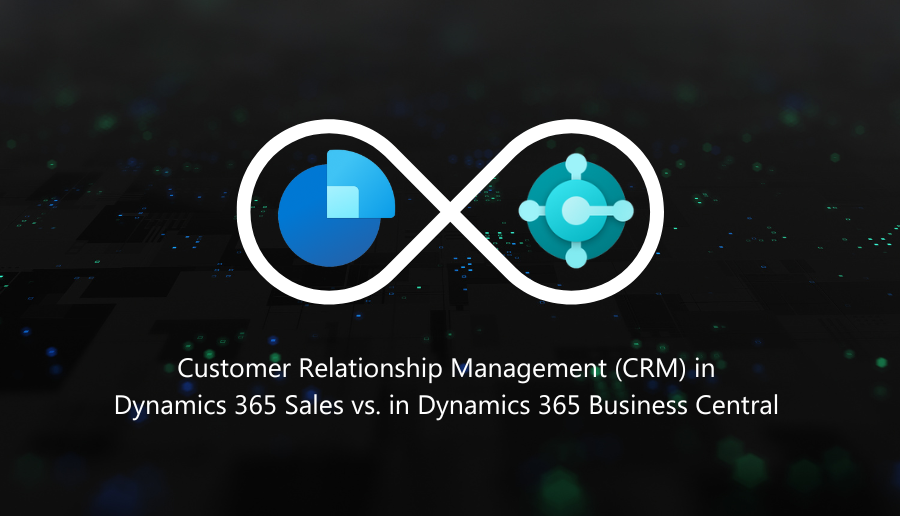We all know that a well-optimized sales process can make all the difference between success and stagnation in a growing business. With customer expectations evolving and markets constantly changing, businesses must equip their sales teams with cutting-edge tools and capabilities to stay ahead of the curve.
Now, with the recent introduction of CoPilot, Microsoft has taken Dynamics 365 Sales (CRM) and Dynamics 365 Business Central to a whole new level. These game-changing solutions empower organizations to elevate productivity, streamline workflows, forge deeper customer engagement, and ultimately achieve remarkable revenue growth.
While Dynamics 365 Business Central offers basic CRM capabilities, its primary focus lies in providing a solid foundation for core ERP functionalities. However, if you’re eager to elevate your CRM capabilities and take your sales process to the next level, look no further than Dynamics 365 Sales. This powerful solution offers a comprehensive suite of sales-centric features, seamlessly optimizing lead management, opportunity tracking, and beyond.
Let’s explore the five significant advantages of Dynamics 365 Sales over CRM in Dynamics 365 Business Central during the sales process.
Advanced Lead Scoring and Qualification
With Copilot’s feature in D365 Sales, you can gain access to powerful machine learning algorithms that can automatically analyze lead data and behaviors, providing the ability to assign lead scores with precision. It considers factors such as lead source, engagement history, and interactions to accurately assess the conversion potential of each lead. This intelligent lead scoring system empowers your sales teams to concentrate their efforts on leads with the highest scores, significantly increasing the likelihood of converting them into loyal paying customers.
On the other hand, D365 BC’s lead scoring capabilities are more basic, relying on predefined rules and lacking the dynamic insights offered by D365 Sales’ advanced lead qualification.
Personalized Customer Insights
In D365 Sales, customer data is gathered from various sources, including emails, social media, and past interactions. Through the use of natural language processing, it carefully analyzes customer sentiments, preferences, and pain points. The result? CoPilot generates personalized customer insights, skillfully categorizing customers into segments like frequent buyers, high-value clients, or those with waning interest. Armed with this invaluable information, your sales representatives can craft a tailored approach and present products or services that truly resonate with each customer, significantly boosting their satisfaction and fostering lasting loyalty.
In contrast, D365 BC’s customer insights primarily focus on financial and operational aspects, providing only limited guidance for your sales teams.
Sales Forecasting and Predictive Analytics
When it comes to sales forecasting and predictive analytics, D365 Sale’s forecasting models take into account historical sales data, market trends, and external factors like economic indicators. D365 Sales can generate highly accurate sales forecasts for various products, regions, or timeframes. These invaluable forecasts enable sales managers to make data-driven decisions, such as fine-tuning sales strategies, optimizing resource allocation, and managing inventory effectively. Moreover, D365 Sales’ predictive analytics uncovers potential opportunities by analyzing customer behavior, empowering sales teams to prioritize leads and zero in on the most promising prospects.
In comparison, D365 BC’s predictive capabilities are primarily tailored for financial projections and lack the comprehensive sales-focused insights that D365 Sales effortlessly provides.
Intelligent Sales Recommendations
D365 Sale’s Copilot makes it possible to analyze historical sales data, customer interactions, and successful deal patterns through machine learning algorithm as mentioned. Based on this analysis, CoPilot suggests personalized sales actions for each deal. For instance, if a prospect shows interest in a particular product, CoPilot may recommend cross-selling related products or upselling higher-tier solutions. These intelligent sales recommendations guide sales representatives through the sales process, ensuring they capitalize on opportunities and tailor their approach to meet individual customer needs.
Alternatively, CRM in D365 BC’s has limited capabilities when it comes to sales recommendations. Users must manually set up business rules to suggest sale recommendations and are limited to these rules.
Enhanced Customer Engagement
D365 Sales leverages CoPilot’s capabilities to automate customer communication and follow-ups. Through personalized email templates and scheduled reminders, CoPilot ensures sales representatives stay connected with customers at crucial touchpoints. For instance, after a successful purchase, CoPilot can trigger a personalized thank-you email, enhancing customer satisfaction and fostering repeat business. Additionally, CoPilot can identify potential customer issues by analyzing communication patterns, prompting sales reps to address concerns promptly.
D365 BC’s customer engagement capabilities may not match this level of automation and personalized communication, as its primary focus lies elsewhere, such as financial reporting and supply chain management.
The Dynamic 365 Duo
To optimize your sales process to its fullest potential, the combination of D365 Sales (CRM) and D365 Business Central forms the dynamic duo. The comprehensive sales functionalities of D365 Sales, complemented by the financial and operational capabilities of D365 BC, create a seamless and robust ecosystem.
If you have specific questions about your business and wish to gain a comprehensive overview to determine whether CRM in Business Central is sufficient or if Dynamics 365 Sales is the right fit for your company, we’ve got you covered. Our expert team will guide you through the process, considering your unique needs and situation. Contact us to receive personalized recommendations that align perfectly with your company’s distinct requirements.








